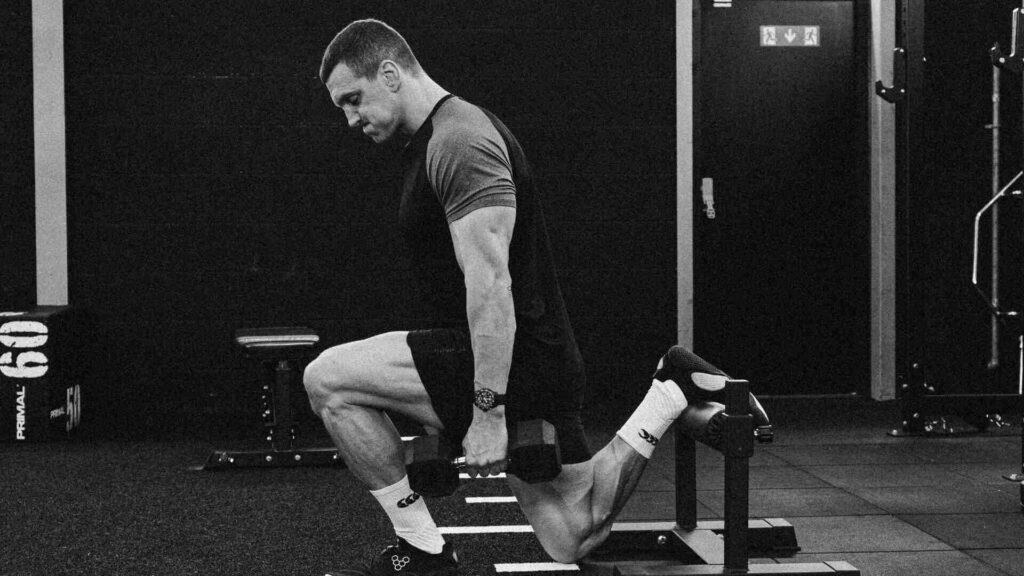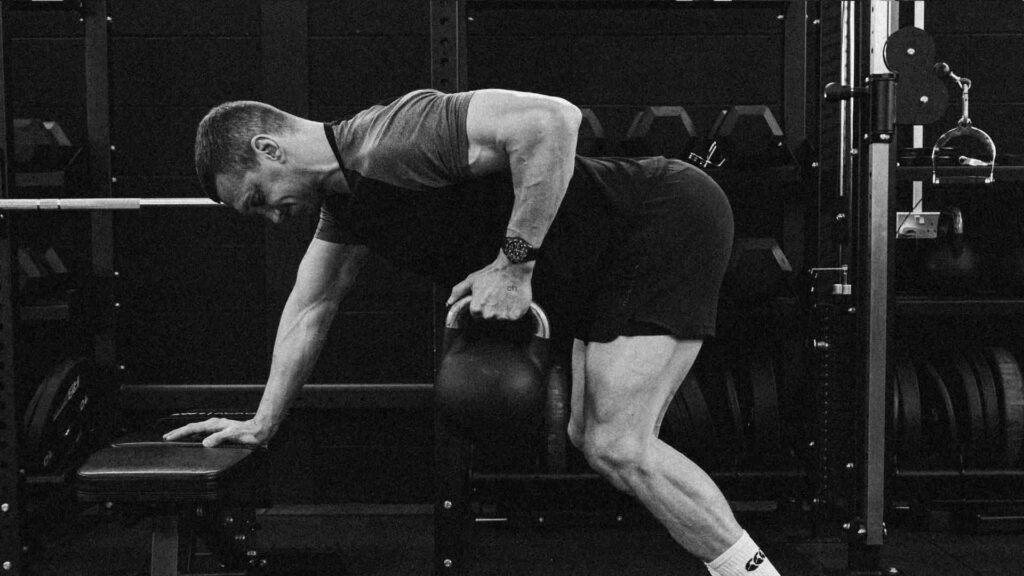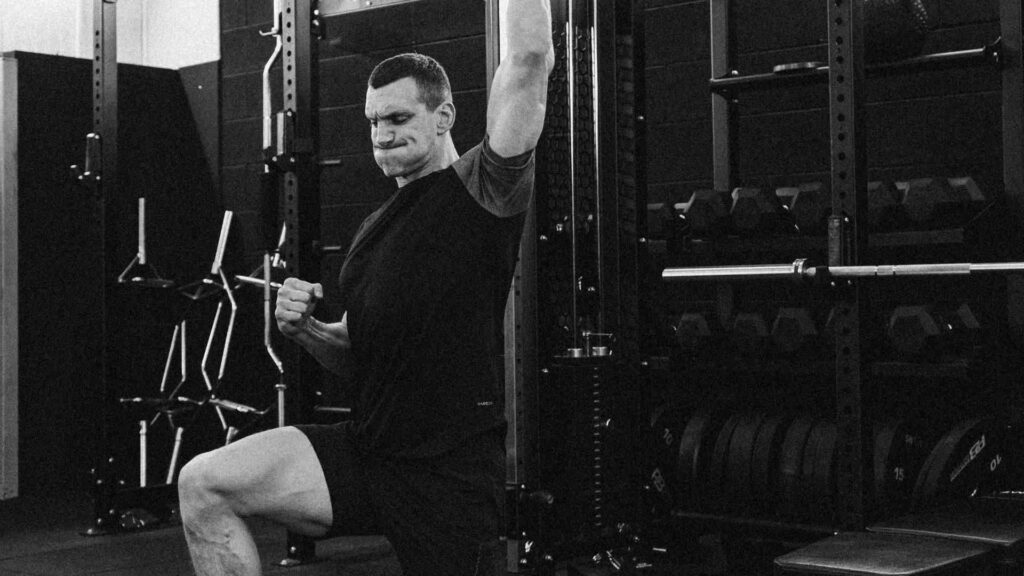Updated on 25/04/2025
“What nutrition tips do you have for building muscle?”
I recall a conversation with a close friend who asked me this exact question. Straight away, I answered back, “How much protein do you eat per day? Do you eat fruit and vegetables at most meals? Do you eat enough calories? Do you prioritise carbohydrate intake?”
He looked at me a little bemused, so I broke it down into four actionable steps. Let’s discuss these now.
1. Protein Intake Is the Foundation of Muscle Growth
Protein is the cornerstone of muscle-building nutrition. It’s the only macronutrient capable of repairing and growing muscle tissue. If you’re not consuming enough protein, your body simply won’t have the tools it needs to build muscle.
How Much Protein Do You Need To Build Muscle?
Nutritional experts recommend consuming a minimum of 1.6g of protein per kilogram of your target body weight daily. For instance, if you aim to weigh 80kg, you should consume at least 128g of protein daily.
To maximise muscle synthesis, aim to spread your protein intake across 3–5 meals or snacks. Each meal should ideally include 30–40g of protein, but don’t get overly fixated on this – your total daily intake matters most.
The Best Sources of Protein
- Lean meats: Chicken, turkey, and beef
- Fish: Salmon, tuna, and cod
- Eggs: A perfect protein source
- Dairy: Greek yogurt, cottage cheese, and milk
- Plant-based options: Lentils, chickpeas, tofu, and tempeh
Consistency is key. Even the best training plan won’t yield results if your protein intake falls short.

2. The Role of Fruits and Vegetables
Why am I recommending fruits and vegetables when they contain minimal protein? (Some vegetables are reasonable protein sources in quantity such as lentils and peas by the way!) I would always recommend eating as much unprocessed food that’s realistically possible.
Why Are Fruits and Vegetables So Important?
- Recovery: Packed with antioxidants, vitamins, and minerals, fruits and vegetables reduce inflammation and speed up recovery.
- Cognitive Function: They support brain health, helping you stay focused during training sessions.
- Health and Immunity: A strong immune system ensures you can train consistently without illness.
- Satiety: Their fibre content keeps you feeling fuller for longer, preventing overeating.
How to Incorporate Fruits and Vegetables into Your Diet
Aim to include at least one fruit or vegetable with every meal. Opt for a variety of colours to ensure a broad range of nutrients. Vegetables like lentils, peas, and spinach also contribute additional protein to your diet.
3. Calories: Fueling Your Gains
For the most part, it’s difficult to build muscle in a calorie deficit unless you’re a novice trainer when during the early days of training your body reacts quickly to most stimulus.
Slow and steady is the best way to build muscle. Be patient and play the long game. I am sorry to say, but there’s no cheat code to pack on quality lean tissue.
Want tailored guidance? Explore SW7’s programmes to find meal plans and performance tips designed to complement your training.
Calculating Your Calorie Needs
- Start with a 5–10% calorie surplus above your maintenance level.
- Track your progress. Aim to gain 0.5kg of muscle per month for sustainable growth.
- Avoid overdoing it. Eating too many calories can lead to unnecessary fat gain.

The Right Way to Bulk
While it may be tempting to “dirty bulk” with pizza and junk food, this approach often leads to poor health and excessive fat gain. Instead, aim to eat quality, nutrient-dense foods 80–90% of the time. Reserve the remaining 10–20% for occasional indulgences.
4. Carbohydrates Are Your Training Ally
If could drop kick ‘no carbs before Marbs’ I would! What people don’t realise is that it’s not the removal of carbs that’s causing them to lose weight, it’s the reduction in their overall calorie intake as a consequence of eating no carbs! Carbs are not the enemy. In fact for training, they’re one of your best friends.
Why Are Carbs So Important?
Carbohydrates are your body’s primary energy source, especially during intense workouts. They replenish glycogen stores in your muscles, ensuring you have the energy to perform at your best.
How to Use Carbs for Muscle Growth
- Include carbs with most meals to fuel your workouts and promote recovery.
- Quality carbohydrate sources include:
- Fruits: Bananas, apples, and berries
- Starchy vegetables: Potatoes and sweet potatoes
- Grains: Rice, quinoa, and oats
- Wholegrain breads and pasta

Debunking Carb Myths
The idea that eating carbs before bed makes you fat is a myth. As long as your overall calorie intake is controlled, the timing of your carbohydrate intake doesn’t matter for weight gain.
Building muscle is a journey that requires commitment, discipline, and attention to detail. By focusing on protein, incorporating plenty of fruits and vegetables, maintaining a slight calorie surplus, and prioritising carbohydrate intake, you’ll set yourself up for success.
At SW7, we believe that nutrition is the foundation of performance. It’s not just about eating to build muscle – it’s about eating to fuel your best self.
Ready to take the next step? Sign up for SW7’s performance programmes, where you’ll find expert support, tailored nutrition strategies, and training plans to help you achieve your goals. Your journey starts now. Take action today, and let SW7 guide you to the results you’ve always wanted.
Written by Sam Warburton.
